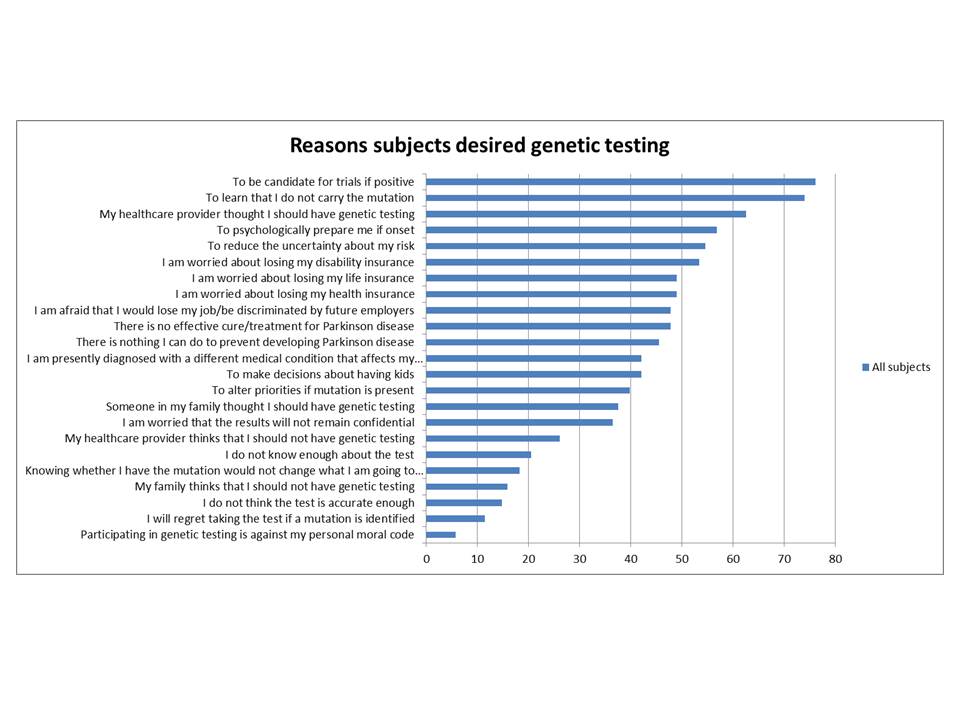Session Information
Date: Monday, October 8, 2018
Session Title: Parkinson's Disease: Genetics
Session Time: 1:15pm-2:45pm
Location: Hall 3FG
Objective: Determine interest in genetic testing (GT) among PD patients with DBS.
Background: About 26-29% of PD patients who undergo DBS have a mutation in one of three genes: glucocerebrosidase (GBA), leucine-rich repeat kinase 2, and parkin. As access to GT for PD increases, it is critical to understand the current knowledge base regarding GT in PD subjects and their expectations regarding how genetic information impacts their treatment.
Methods: Consecutive non-demented PD patients with bilateral STN-DBS were recruited. The Genetic Attitude Questionnaire (GAQ) – an assessment of GT knowledge – was administered to subjects. Demographic and clinical data were compared using student t-test or Mann-Whitney U as appropriate. Subjects were dichotomized according to whether they did or did not want GT. Correct genetic knowledge responses were quantified for all subjects and then compared using chi-square tests according to desire to obtain GT and GBA mutation status. Identical analysis was performed for reasons for desiring GT. A multivariate logistic regression model was used to identify predictors of desire to obtain GT.
Results: One hundred subjects were enrolled and complete GAQ data were available for 88 (Table 1). Fourteen respondents (16%) were GBA mutation carriers. The mean percent of correct responses for all subjects regarding genetic knowledge was 58.5% (Fig 1). Genetic knowledge was not significantly higher in subjects who desired GT (p>0.05) nor among GBA mutation carriers (p>0.05). Fifty-three subjects (60%) would opt for GT if it could predict their response to DBS. Subjects who desired GT were more likely than those who did not to be aware that genes have been identified which confer a higher risk of developing PD (p = 0.02). Both those who desired GT and those who did not were more likely to consider eligibility in clinical trials an important consideration in making their decision (95.83% and 76.67%) (Fig 2). In a multivariate logistic regression model, age, disease duration, sex, UPDRS-III scores, HY stage, and GBA mutation status were not predictive of desire to obtain GT (p’s>0.05).
Conclusions: Most patients would want GT it if it could predict response to DBS. Knowledge gaps were identified in this advanced PD cohort. Desire to be eligible for clinical trials was associated with the desire for GT.
To cite this abstract in AMA style:
A. Fraint, G. Pal, L. Verhagen, D. Hall, K. Marder. Interest in Genetic Testing in PD Patients with DBS [abstract]. Mov Disord. 2018; 33 (suppl 2). https://www.mdsabstracts.org/abstract/interest-in-genetic-testing-in-pd-patients-with-dbs/. Accessed July 15, 2025.« Back to 2018 International Congress
MDS Abstracts - https://www.mdsabstracts.org/abstract/interest-in-genetic-testing-in-pd-patients-with-dbs/

